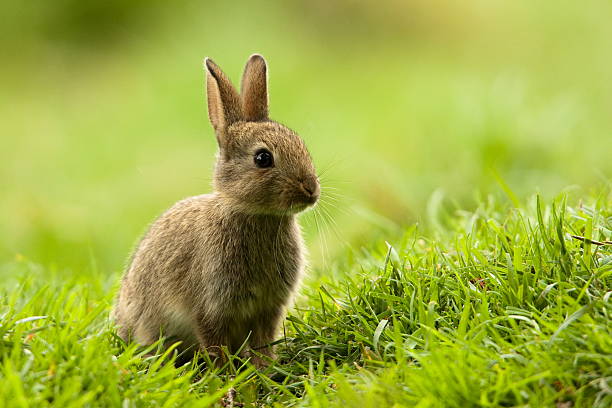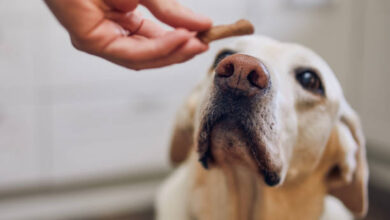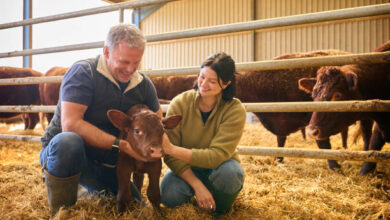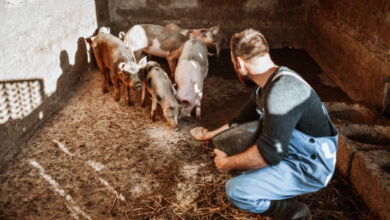
What Do Baby Rabbits Eat? A Guide to Healthy Bunnies
Those little balls of fluff with twitchy noses and wiggling ears – baby rabbits are undeniably adorable. But beyond their cuteness lies the responsibility of proper care, including a healthy diet that fuels their growth. So, what exactly do these fuzzy friends munch on?
Momma Knows Best: The Power of Milk
For the first few precious weeks of life, baby rabbits rely solely on their mother’s milk. This nutrient-rich milk provides everything they need to thrive in their early stages. The weaning process, where they transition from milk to solid food, typically happens around 6-8 weeks old.
A World of Solid Delights: Introducing New Foods
As curious eyes open and little legs start exploring, baby rabbits become increasingly interested in the world around them, including food! This is the time to introduce them to a well-balanced diet of hay and pellets.
Hay: The Essential Munch:
Unlimited access to high-quality hay is crucial for a baby rabbit’s diet. Alfalfa hay, with its high protein and calcium content, is ideal for growing bones and strong teeth. Hay also plays a vital role in healthy digestion and keeps those ever-growing teeth worn down naturally.
Choosing the Right Pellets:
Commercially available rabbit pellets can be a helpful addition to a baby rabbit’s diet. However, it’s important to choose pellets specifically formulated for young rabbits. Look for pellets with high protein and calcium content to support their development. Avoid sugary mixes that can be detrimental to their health.
Feeding Tips for Happy Bunnies
Introducing solid foods to your baby rabbit is an exciting time, but it’s also important to create healthy habits that will benefit them throughout their lives. Here are some key tips to ensure your little furball enjoys a well-balanced and satisfying diet:
Start Slow and Steady: A baby rabbit’s digestive system is still developing. When introducing new foods, like pellets, begin with a very small amount (around a tablespoon) and gradually increase the quantity over several days. This allows their gut to adjust and prevents them from developing gas or diarrhea.
Variety is the Spice of Life (But Not Too Much!): Once your bunny has adjusted to hay and pellets, you can introduce a small amount (around 1-2 tablespoons daily) of fresh, leafy greens like romaine lettuce, kale, or dandelion greens. Experiment with different options to see what your bunny enjoys, but remember to introduce new greens one at a time to monitor their reaction.
Portion Control is Key: As adorable as those bunny eyes are, resist the urge to overfeed your little friend. Overeating can lead to obesity and digestive issues. Follow the recommended feeding guidelines on your chosen pellet bag based on your rabbit’s age and weight.
Make Mealtime Fun: Hay can sometimes seem a bit boring, especially for curious youngsters. Encourage your bunny to eat their hay by scattering it around their enclosure or stuffing it into a hay ball or puzzle feeder. This adds a touch of challenge and keeps them mentally stimulated while they munch.
Fresh Water is Essential: Rabbits may not seem like big water drinkers, but they need access to fresh, clean water at all times. Invest in a good quality water bottle with a sipper tube and monitor the water level daily. Consider supplementing with a shallow bowl of water as well, especially as your bunny gets older.
Schedule Makes Perfect: Rabbits are creatures of habit. Develop a consistent feeding schedule, offering hay and pellets at the same time each day. This helps regulate their digestive system and prevents them from becoming anxious or overeating.
By following these simple tips, you can ensure your baby bunny develops healthy eating habits that will contribute to a long and happy life. Remember, consistency and a little creativity can go a long way in creating a positive and enriching mealtime experience for your furry friend.
When in Doubt, Seek Help
If your baby rabbit shows signs of disinterest in food, weight loss, or any other concerning behavior, don’t hesitate to consult your veterinarian. They can offer valuable guidance and ensure your little bunny is on the right track to a healthy life.
READ ALSO: WHAT IS THE STRONGEST ANIMAL?
Conclusion
By providing a diet rich in high-quality alfalfa hay, age-appropriate pellets, and fresh water, you’re setting your baby rabbit up for a healthy and happy life. Remember, proper nutrition is essential for their growth and well-being. With responsible care and a little knowledge, you can watch your fluffy friend blossom into a thriving adult rabbit.
Trending FAQs: What Do Baby Rabbits Eat?
With adorable baby rabbits hopping around the internet these days, it’s no surprise many people are curious about their diet. Here are some of the most frequently asked questions about what these little fluffballs munch on:
Q: Can I give my baby rabbit vegetables?
A: While baby rabbits can have a small amount of fresh, leafy greens once they’ve adjusted to hay and pellets, it’s best to wait until they are at least 12 weeks old. Start with a tiny amount (1-2 tablespoons daily) of rabbit-safe greens like romaine lettuce, kale, or dandelion greens. Introduce new greens one at a time to monitor their reaction.
Q: What kind of hay is best for baby rabbits?
A: Unlike adult rabbits who thrive on timothy hay, baby rabbits need the extra protein and calcium found in alfalfa hay. This supports their rapid growth and developing bones. Provide unlimited access to high-quality alfalfa hay for your little bunny.
Q: How much should I feed my baby rabbit?
A: Overfeeding can lead to health problems in baby rabbits. Follow the recommended feeding guidelines on your chosen pellet bag based on your rabbit’s age and weight. Typically, a small amount (around a tablespoon) of pellets is enough for younger kits.
Q: My baby rabbit isn’t interested in food. What should I do?
A: If your baby rabbit shows a sudden disinterest in food, weight loss, or other concerning behaviors, consult your veterinarian immediately. They can rule out any underlying health issues and offer guidance on proper feeding practices.
Q: Can I give my baby rabbit milk?
A: Ideally, baby rabbits should receive their nutrients from their mother’s milk for the first 6-8 weeks. If you’re caring for an orphaned baby rabbit, consult a veterinarian or wildlife rehabilitator for proper milk replacer options. Cow’s milk is not suitable for baby rabbits.
Q: What can’t I feed my baby rabbit?
A: Avoid sugary treats, fruits, and certain vegetables like iceberg lettuce or cabbage. These can cause digestive upset in young rabbits. Stick to a diet of high-quality hay, age-appropriate pellets, and a small amount of safe leafy greens once they are old enough.




